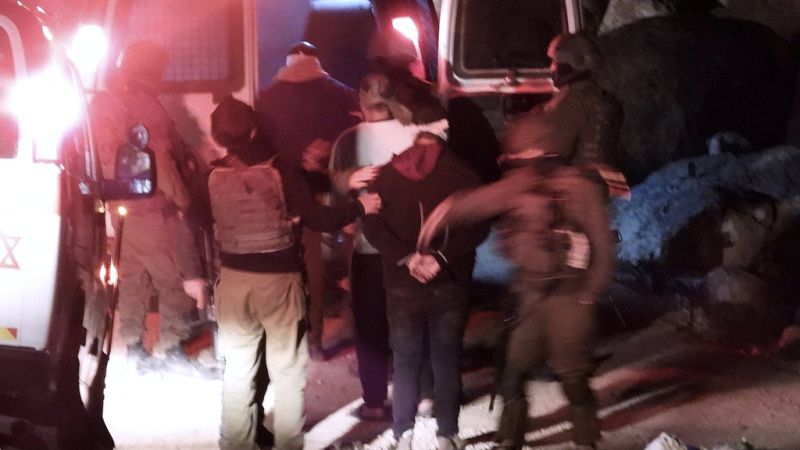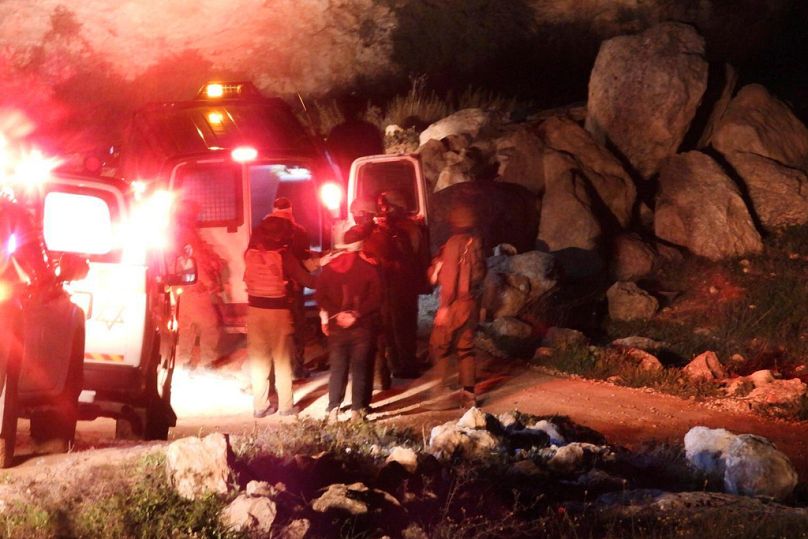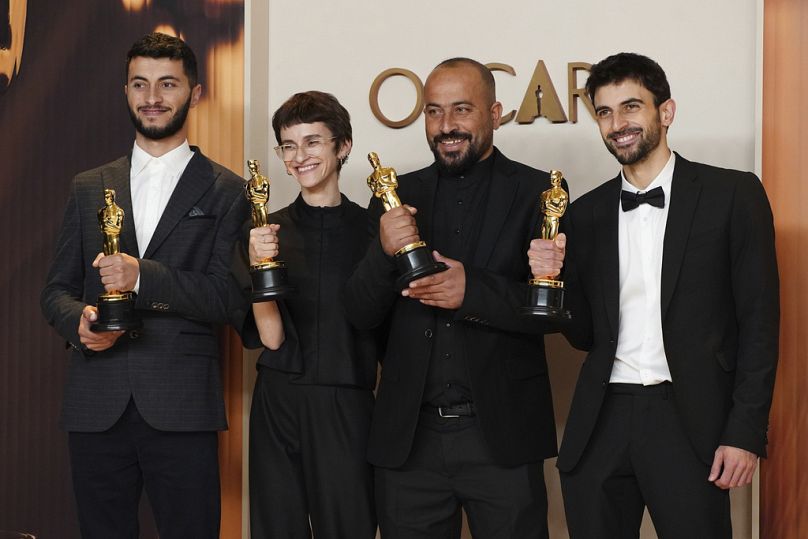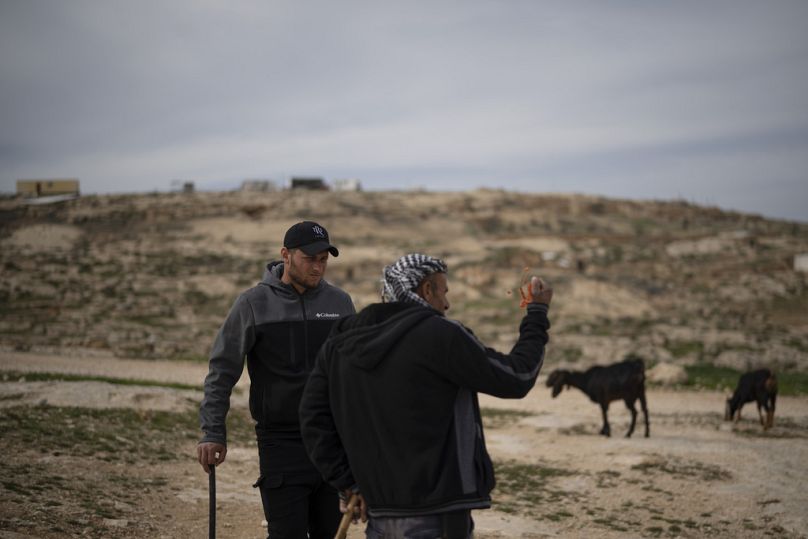
Israeli settlers have been accused of attacking Hamdan Ballal, one of the Palestinian co-directors of the Oscar-winning documentary No Other Land, in the occupied West Bank.
According to his fellow directors and other witnesses he was beaten before being arrested by the Israeli military on Monday.
Ballal, along with two other Palestinians, was detained in the village of Susiya, according to lawyer Lea Tsemel, who is representing the group. Police told her the detainees were being held at a military base for medical treatment, but she hadn’t been able to get in touch with them by Tuesday morning and had no further information on their whereabouts.

Basel Adra, another co-director of the documentary, was present at the scene. He explained that a group of about 20 settlers – some masked, some armed, and others in Israeli uniforms – attacked the village. When soldiers arrived, they aimed their guns at the Palestinians while the settlers continued throwing stones.
“We came back from the Oscars and every day since there is an attack on us,” Adra said. “This might be their revenge on us for making the movie. It feels like a punishment.”
The Israeli military later stated it had detained three Palestinians, accusing them of throwing rocks at forces, along with one Israeli civilian involved in a “violent confrontation” – a claim witnesses interviewed by the Associated Press disputed. The military said the detainees were transferred to Israeli police for questioning, and an Israeli citizen was evacuated for medical treatment.

No Other Land, which won the Oscar for Best Documentary earlier this year, tells the story of Palestinian residents in the Masafer Yatta area fighting to prevent the Israeli military from demolishing their villages. Ballal and Adra, both from Masafer Yatta, made the film with Israeli directors Yuval Abraham and Rachel Szor.
The film has been met with both critical acclaim and backlash. It won a slew of awards starting at the Berlin International Film Festival in 2024 but has faced strong opposition in Israel and beyond, including controversy in Miami Beach, where there were proposals to end the lease of a movie theatre that showed the documentary.

Adra described how the attack began shortly after villagers broke their fast for Ramadan. A settler, known to frequently harass the village, arrived at Ballal’s house with the military, and soldiers fired into the air. Ballal’s wife then heard her husband being beaten outside and screaming, “I’m dying.” The director was later handcuffed, blindfolded, and led to a military vehicle, leaving blood on the ground outside his home.
An anonymous eyewitness corroborated much of Adra’s account, confirming the violent nature of the attack.
In addition to the assault on Ballal, 10-20 masked settlers with sticks and stones also targeted activists from the Centre for Jewish Nonviolence, smashing car windows and slashing tires to force them to flee. Activist Josh Kimelman described the attack to the Associated Press, with video footage from the Centre for Jewish Nonviolence showing a masked settler pushing and throwing fists at two activists in a dusty field at night. The activists quickly ran back to their car, with rocks heard striking the vehicle.

The West Bank, captured by Israel in the 1967 Six-Day War, is home to over 500,000 settlers living in more than 100 settlements, while around 3 million Palestinians live under Israeli military rule.
In the 1980s, the Israeli military designated Masafer Yatta in the southern West Bank as a live-fire training zone and ordered the expulsion of its residents, mostly Arab Bedouin. While around 1,000 people have largely stayed, soldiers frequently demolish homes, tents, water tanks, and olive orchards, with Palestinians fearing that full expulsion could happen at any moment.
During the war in Gaza, Israel has killed hundreds of Palestinians in the West Bank through large-scale military operations, while settler attacks on Palestinians have also increased. There has also been a rise in attacks by Palestinians against Israelis.







